ADS
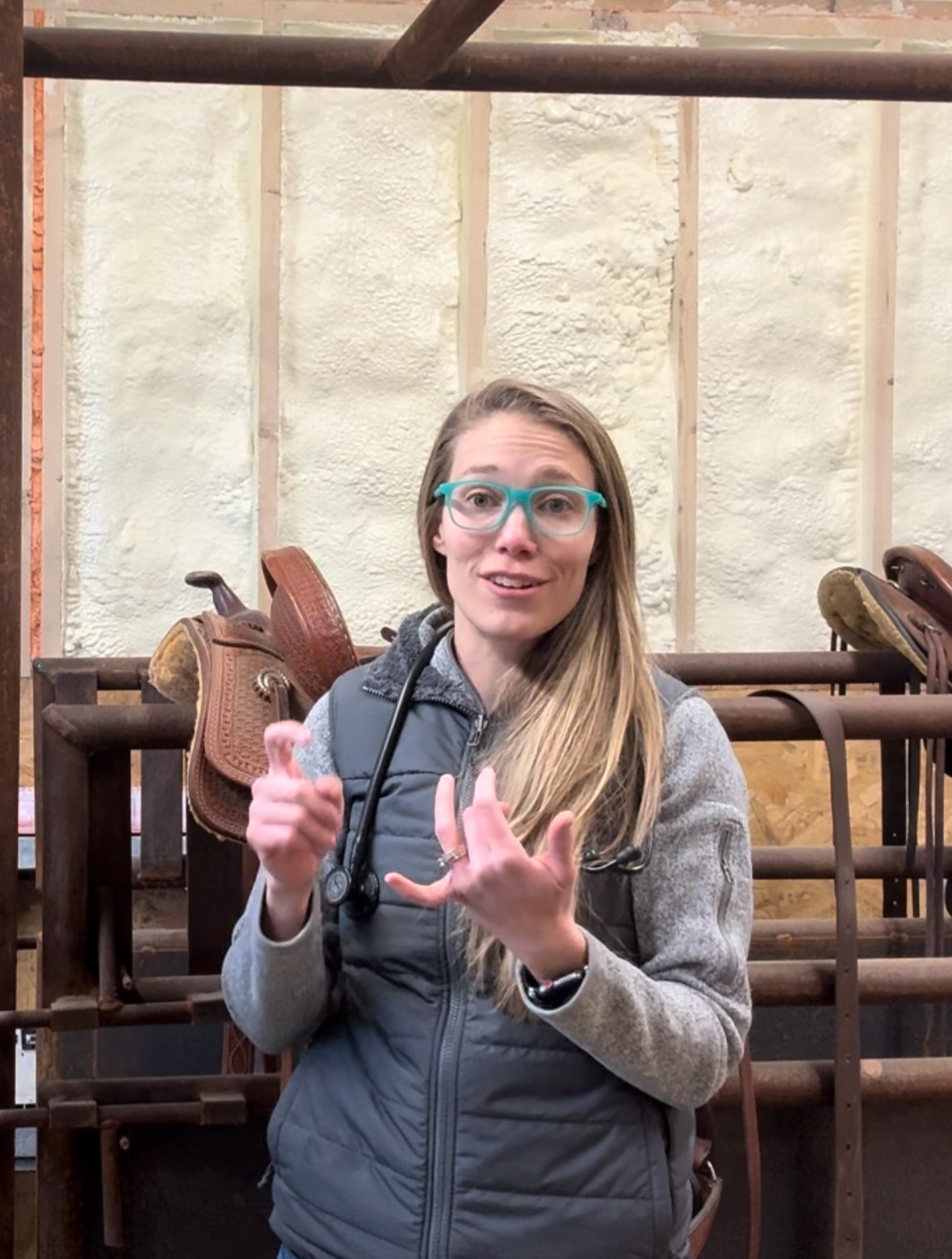
Dr Brookelle Bartsch of Dakota Skies Equine shares some valueable tips for the season upon us. [Photo: Dakota Horse Magazine]
As horse owners gear up for the season, they’re not just preparing for rides and competitions. They’re also bracing for the challenges that allergies and heaves can bring to their equine companions. To shed light on this topic, Dakota Horse Magazine (DHM) met with Dr. Bartsch, owner of Dakota Skies Equine, to offer insights from her expertise. Here is part of that conversation from the barn.
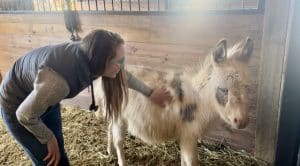
Dr. Brookelle Bartsch of Dakota Skies Equine. [Photo: Dakota Horse Magazine]
DHM: “What are we noticing as common issues among horses currently in our season and climate?”
Dr. Bartsch: “So right now, we’re seeing tons of upper respiratory stuff, whether it’s infectious or inflammation like heaves. I’ve seen tons of it lately.”
DHM: “Can infections, whether respiratory or lung-involved, lead to chronic or long-term issues, such as heaves?”
Dr. Bartsch: “Absolutely. So, heaves themselves are essentially chronic inflammation, often caused by environmental factors such as pollens, molds, and dust. These irritants can trigger a cascade of symptoms, leading to respiratory distress in horses.”
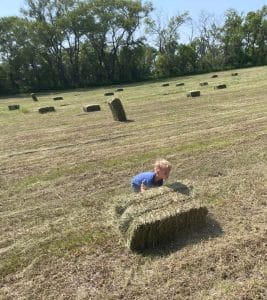
The hay horses are fed in the winter months can play an integral role in respiratory health. [Photo: Dakota Horse Magazine]
DHM: “Could heaves stem from allergies, chronic infections, or both?”
Dr. Bartsch: “Heaves are kind of a combination of everything mentioned, minus an infectious cause. However, horses with heaves can still be prone to infections due to compromised respiratory function.”
DHM: “How do we manage heaves in horses?”
Dr. Bartsch: “Managing heaves is often a long-term endeavor. It involves minimizing exposure to airborne irritants, such as dust and pollen, which are commonly found in hay. Soaking hay in water before feeding can help reduce these allergens. Additionally, providing adequate ventilation in stables and using hay nets or feeders to prevent inhalation of dust are recommended.”

Hay nets are a possible solution to horses inhaling dust, pollens, and debris. [Photo: Dakota Horse Magazine]
DHM: “What are the treatment options for heaves?”
Dr. Bartsch: “Treatment typically involves a combination of environmental management and medical intervention. Steroids may be prescribed to reduce inflammation, but they come with potential side effects. For severe cases, inhalers or nebulizers containing bronchodilators can help open up airways and alleviate symptoms.”
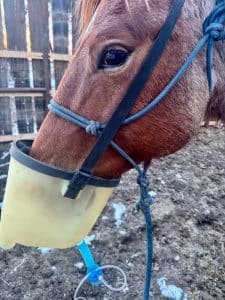
Nebulizing is a possible treatment method to allergies and chronic heaves. [Photo: Dakota Horse Magazine]
DHM: “How long does it take to treat heaves, and can it recur?”
Dr. Bartsch: “Heaves can be a chronic condition, requiring ongoing management. Flare-ups may take weeks to resolve, and in some cases, heaves can be a lifelong issue. Preventative measures, such as minimizing dust exposure and optimizing stable conditions, are crucial for reducing the likelihood of recurrence.”
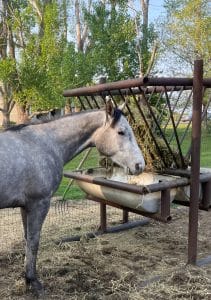
Feeders, high or low, could affect the respiratory health of your horse. [Photo: Dakota Horse Magazine]
DHM: “What should horse owners do if they suspect their horse has heaves?”
Dr. Bartsch: “Consulting with a veterinarian is essential for an accurate diagnosis and tailored treatment plan. Every horse is unique, so it’s important to work closely with your vet to address the specific needs of your animal.”
DHM: “Any final advice for horse owners?”
Dr. Bartsch: “Maintaining open communication with your veterinarian is key. Together, you can develop a comprehensive approach to managing allergies and heaves in your horses. Remember, every horse is different, so understanding their individual needs is paramount.”
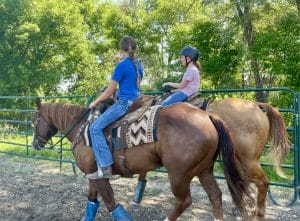
Keep your horses healthy, pay attention to an issue before it becomes chronic. [Photo: Dakota Horse Magazine]
As the rodeo season approaches and horses gear up for training and competition, it’s crucial for owners to be vigilant about respiratory health. By implementing proactive measures and seeking timely veterinary care, horse owners can help their beloved companions stay healthy despite the challenges of allergies and heaves.
For the full interview, stay tuned for Dakota Cowboy on BEK TV.
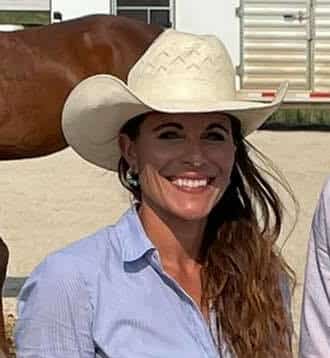
Tisa Peek is a long-time horse trainer, competitor in barrel racing and team roping, and writer about the equine. Rodeo and horses run deep in her roots. JT Family Equine is where she calls home, south of Bismarck, ND. Tisa, along with her husband, Jon, and boys, Blu and River, train horses and host clinics. Tisa is the host for Dakota Cowboy on BEK TV.
